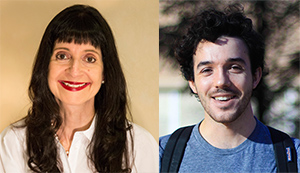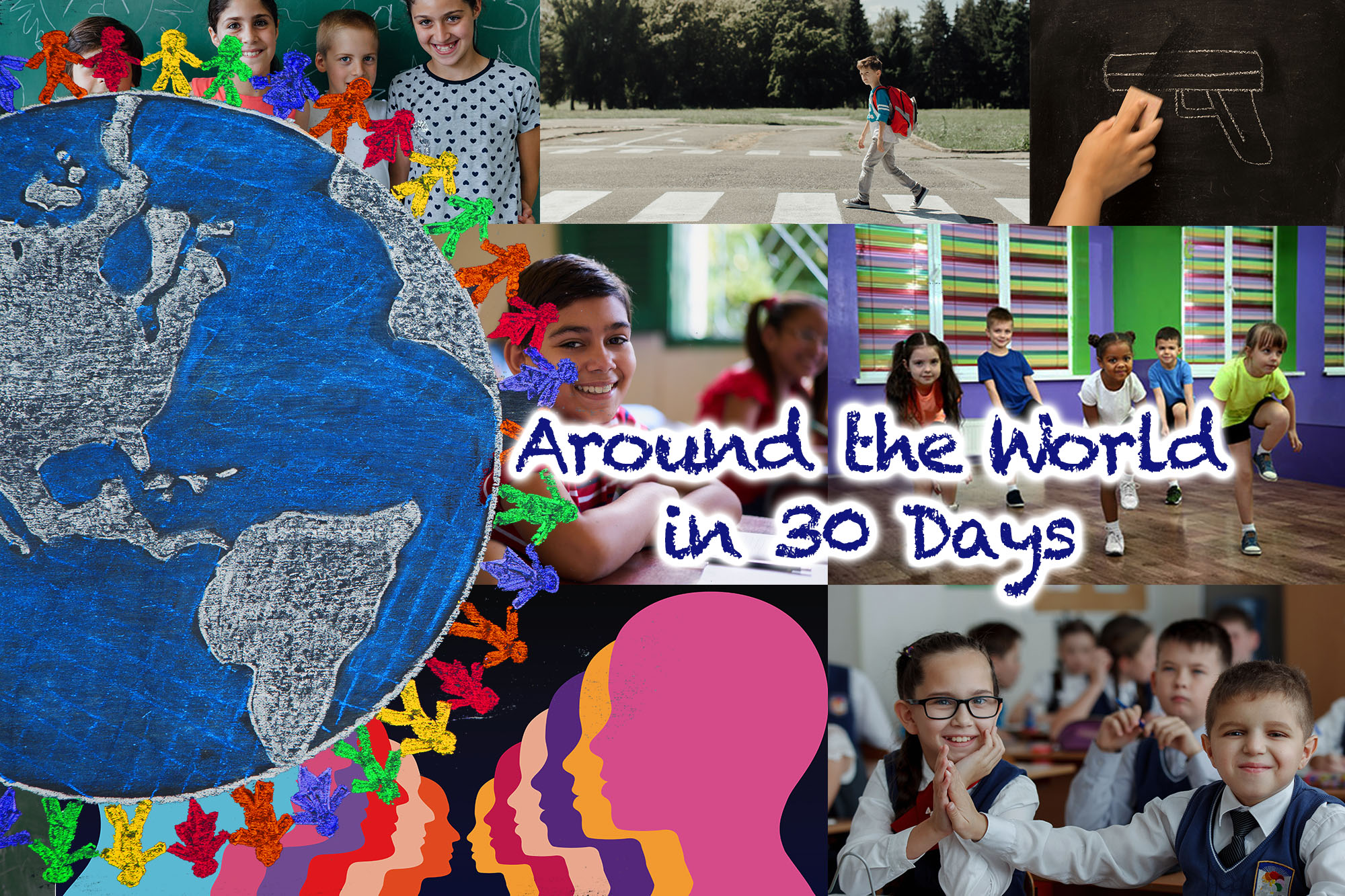“The focus of a math curriculum shouldn’t just be about making students computationally capable but also fostering an appreciation for the beauty of mathematics.” — Daniel Kunin
Daniel Kunin, a first-year masters student at Stanford University, studies Computational and Mathematical Engineering and is also the creator of the online platform, Seeing Theory, where he uses creative and innovative ways to teach statistics and probability relevant to a changing world.
In the interview that follows, Kunin discusses math education today and how he believes it can be improved in order to both foster curiosity and be more relevant now and going forward. He argues that math should also be taught the same way that other subjects are taught so that it’s not just about learning the technical details but also about learning how to appreciate the “beauty” of the subject.
Kunin advocates for more focus in curriculum on topics such as statistics which he believes is vital to youth living in the digital age of data. Learning more about the multidisciplinary field of statistics will better prepare students entering the employment market.
To discuss the future of Math Curriculum, The Global Search for Education is pleased to welcome Daniel Kunin.
“Statistics is becoming the most multidisciplinary and important field of mathematics because it’s about understanding and making inference with data. As data becomes ubiquitous and an aspect of nearly every discipline, then so will statistics.” — Daniel Kunin
Daniel, how would you describe the problems with math education today?
I wouldn’t necessarily say there is a problem with math education, but obviously it can always be improved. From a super high level I guess I would say tracking in math, where students from a young age believe they either are or are not a “math person”, is a problem. I think this means math is not being taught right. I would say an issue with a lot of groups trying to redefine how we teach math is they are focusing on the practical, on how a student will use math in their adult life. I would say no math class I have ever taken would make me better at doing my taxes or determining the tip at a restaurant. In English class, the purpose isn’t to just teach students how to read and write but how to appreciate good literature and find beauty in the written word. This should be the same for math education. The focus of a math curriculum shouldn’t just be about making students computationally capable but also fostering an appreciation for the beauty of mathematics. I think fostering this curiosity is important to making math more inclusive and dispelling this notion of a “math person”; we are all “math people”.
What do you see as the most essential elements of statistics that should be known by a very broad audience of students?
That’s tough. I guess building some broad intuition about randomness (what a random variable is) and what statistical modeling is. I think many people are familiar with the notion of R^2, linear regression, uniform and normal distributions. I don’t think its actually important to understand these notions from a more rigorous mathematical sense, but I do think its important to understand that these are just some of the common tools in a much broader bag of tools in statistics.
“I think calculus is one of the greatest achievements of mathematics and is incredibly important even in the field of statistics. While it is incredibly useful to understanding our physical world, it isn’t incredibly useful to understanding our digital world.” — Daniel Kunin
Can you give me some practical examples of the applicability of at least two of these essential elements to real life problems that demonstrate their usefulness to a student entering the employment market?
Some friends are playing poker and one of them just got an incredible hand, so on the next hand, I bet much higher than normal because it is unlikely they got a good hand again (this is wrong). A student is asked to predict market sales for the next quarter. They take last year’s sales and fit a linear model to the data and determine that next quarter sales will continue in this trend. A student should understand that the relationship may not be linear, that a statistical model is not fact but comes with a level of confidence, an have an understanding of the difference between correlation and causation and that how having different data could significantly change their result.
Again, as I mentioned earlier, I am actually not interested in the word problem/practical side of statistics. I actually think this is quite old fashioned. Statistics doesn’t need to be the math of word problems. It can be taught and evaluated in more creative ways that are more theoretical. For instance, I give you an unfair coin, but you don’t know what the “weight” is and I ask you to determine how to sample from a fair coin using only this unfair coin.
Why do you believe that statistics is becoming one of the most vital subjects in the 21st century? What will drive its increasing importance in the foreseeable future?
Statistics is becoming the most multidisciplinary and important field of mathematics because it’s about understanding and making inference with data. As data becomes ubiquitous and an aspect of nearly every discipline, then so will statistics.
“The goal of Seeing Theory was to foster curiosity and exploration in statistics and foster an appreciation for the beauty of “making sense” out of randomness. I think it also demonstrates how online education doesn’t need to just be video tutorials and questionnaires.” — Daniel Kunin
How important are subjects such as calculus, which have been foundational to mathematics study in past decades, to current and future generations? What modifications would you make to the scope or nature of instruction of these more traditional pillars?
I think calculus is one of the greatest achievements of mathematics and is incredibly important even in the field of statistics. While it is incredibly useful to understanding our physical world, it isn’t incredibly useful to understanding our digital world. I think it is important that curricula start to put more emphasis on statistics, graph theory and discrete math. While that doesn’t mean students should not learn calculus, I don’t think it needs to be the focus.
How does Seeing Theory enhance the study of statistics and advance traditional pedagogical methods for teaching this subject?
The goal of Seeing Theory was to foster curiosity and exploration in statistics and foster an appreciation for the beauty of “making sense” out of randomness. I think it also demonstrates how online education doesn’t need to just be video tutorials and questionnaires. There are more creative and interactive ways of teaching content online.
(All photos are courtesy of CMRubinWorld)
C. M. Rubin and Daniel Kunin
Join me and globally renowned thought leaders including Sir Michael Barber (UK), Dr. Michael Block (U.S.), Dr. Leon Botstein (U.S.), Professor Clay Christensen (U.S.), Dr. Linda Darling-Hammond (U.S.), Dr. MadhavChavan (India), Charles Fadel (U.S.), Professor Michael Fullan (Canada), Professor Howard Gardner (U.S.), Professor Andy Hargreaves (U.S.), Professor Yvonne Hellman (The Netherlands), Professor Kristin Helstad (Norway), Jean Hendrickson (U.S.), Professor Rose Hipkins (New Zealand), Professor Cornelia Hoogland (Canada), Honourable Jeff Johnson (Canada), Mme. Chantal Kaufmann (Belgium), Dr. EijaKauppinen (Finland), State Secretary TapioKosunen (Finland), Professor Dominique Lafontaine (Belgium), Professor Hugh Lauder (UK), Lord Ken Macdonald (UK), Professor Geoff Masters (Australia), Professor Barry McGaw (Australia), Shiv Nadar (India), Professor R. Natarajan (India), Dr. Pak Tee Ng (Singapore), Dr. Denise Pope (US), Sridhar Rajagopalan (India), Dr. Diane Ravitch (U.S.), Richard Wilson Riley (U.S.), Sir Ken Robinson (UK), Professor Pasi Sahlberg (Finland), Professor Manabu Sato (Japan), Andreas Schleicher (PISA, OECD), Dr. Anthony Seldon (UK), Dr. David Shaffer (U.S.), Dr. Kirsten Sivesind (Norway), Chancellor Stephen Spahn (U.S.), Yves Theze (LyceeFrancais U.S.), Professor Charles Ungerleider (Canada), Professor Tony Wagner (U.S.), Sir David Watson (UK), Professor Dylan Wiliam (UK), Dr. Mark Wormald (UK), Professor Theo Wubbels (The Netherlands), Professor Michael Young (UK), and Professor Minxuan Zhang (China) as they explore the big picture education questions that all nations face today.
The Global Search for Education Community Page
C. M. Rubin is the author of two widely read online series for which she received a 2011 Upton Sinclair award, “The Global Search for Education” and “How Will We Read?” She is also the author of three bestselling books, including The Real Alice in Wonderland, is the publisher of CMRubinWorld and is a Disruptor Foundation Fellow.
Follow C. M. Rubin on Twitter: www.twitter.com/@cmrubinworld










Recent Comments